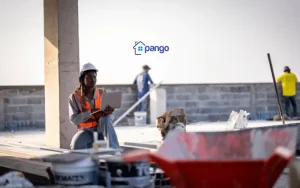Investing in real estate can be a lucrative opportunity, especially in emerging markets like Tanzania. With a significant housing deficit, rapid urban population growth, and increasing foreign direct investment (FDI), the Tanzanian real estate market offers promising potential for investors. This blog post will provide an in-depth analysis of the real estate market in Tanzania, expected returns, benefits and risks, and explore non-traditional investment opportunities.
Market Opportunity
Housing Deficit
Tanzania faces a housing deficit of over 3 million units, highlighting a substantial market opportunity for real estate investors. This gap presents a chance for developers to build residential properties that cater to the growing demand for housing.
Urban Population Growth
The urban population in Tanzania is currently close to 40% and is growing at a rate of 5.2% annually. This rapid urbanization increases the demand for residential, commercial, and industrial real estate, providing a fertile ground for investment.
Increase in Foreign Direct Investment (FDI)
With the rise in FDI, there is an increased demand for office spaces, industrial properties, and residential units for expatriates. This trend is likely to drive the development of new real estate projects and improve the overall market dynamics.
Growing Awareness of Real Estate as an Asset Class
There is a growing awareness among Tanzanians about the benefits of investing in real estate as an asset class. This shift in mindset is encouraging more individuals to consider real estate as a viable investment option, further boosting market growth.
Rise of Airbnb and Short-Term Rentals
The global growth of Airbnb by 34% in 2022 reflects a trend where more travelers prefer short-term rentals over traditional hotels. This trend is also visible in Tanzania, where the demand for Airbnb and other short-term rental properties is on the rise, offering lucrative returns for investors.
Current Mortgage Market
The current mortgage market in Tanzania is valued at TZS 615 billion, which is relatively small and expensive. However, this also indicates potential for growth and improvement in mortgage accessibility and affordability.
Rental Market
Approximately 44% of urban dwellers in Tanzania live in rented houses (Statista 2021). This high percentage of renters creates a steady demand for rental properties, making it an attractive market for real estate investors.
Expected Investment Returns
According to the Knight Frank report 2022/2023, the expected rental yield per annum for different types of properties in Tanzania are as follows:
- Office Buildings: 9%
- Retail Spaces: 10%
- Industrial Properties: 10%
- Residential Properties: 6%
These yields indicate a healthy return on investment (ROI) for various types of real estate, making Tanzania an attractive destination for real estate investors.
Benefits of Investing in Real Estate
- Long-Term Capital Appreciation Real estate generally appreciates in value over time, providing investors with significant capital gains in the long run.
- Regular Cash Flow Rental properties generate consistent rental income, offering a steady cash flow for investors.
- Inflation Hedge Real estate investments typically perform well during inflationary periods, as property values and rents tend to increase with inflation.
- Asset Build-Up for Leveraging Real estate assets can be leveraged to raise funds for other projects, allowing investors to expand their portfolios.
- Stable Asset for Inter-Generational Wealth Real estate is a tangible asset that can be passed down through generations, ensuring long-term financial stability for families.
Risks of Investing in Real Estate
- Market Volatility The real estate market can be volatile, with property values fluctuating based on economic conditions.
- Illiquidity Real estate is not as liquid as other investment options, making it difficult to quickly sell properties without potential loss.
- Low Occupancy Rates Properties may face periods of low occupancy, impacting rental income and overall ROI.
- Market Slump and Loss of Value Economic downturns can lead to a market slump, reducing property values and affecting investment returns.
Non-Traditional Opportunities in Real Estate
- Real Estate Investment Trusts (REITs) REITs pool funds from investors to invest in real estate properties, distributing income annually. This allows investors to benefit from real estate returns without directly owning properties.
- Real Estate Crowdfunding Crowdfunding platforms enable developers to raise funds from the public in small amounts, using debt or equity options. This democratizes real estate investment, making it accessible to a broader audience.
- Peer-to-Peer Mortgage Lending Peer-to-peer mortgage platforms allow individuals to lend money to others for home purchases, earning returns through installment repayments. This provides an alternative investment avenue in real estate.
- Real Estate Investment Clubs Investment clubs involve friends pooling funds together to buy properties or land. They can also partner with developers for joint ventures, sharing profits from the projects.
- Proptech Innovations Proptech leverages technology to enhance the real estate experience. Innovations include e-building permits, digital title searches, and online platforms for buying customized house plans and designs.
Practical Steps for Investing in Tanzanian Real Estate
Research and Market Analysis
Conduct thorough research and market analysis to understand the current trends, property values, and potential growth areas. This will help in making informed investment decisions.
Financing Options
Explore various financing options, including traditional mortgages, REITs, crowdfunding, and peer-to-peer lending. Evaluate the pros and cons of each option to choose the best fit for your investment strategy.
Legal and Regulatory Considerations
Ensure compliance with local laws and regulations governing real estate transactions in Tanzania. Engage legal experts to assist with due diligence, contracts, and property registration.
Property Management
Effective property management is crucial for maintaining property value and ensuring steady rental income. Consider hiring professional property management services to handle day-to-day operations.
Networking and Partnerships
Build a network of real estate professionals, including agents, developers, legal experts, and fellow investors. Partnerships can provide valuable insights, opportunities, and support in navigating the real estate market.
Conclusion
Investing in real estate in Tanzania offers a myriad of opportunities and potential returns. With a growing urban population, increasing FDI, and rising awareness of real estate as an asset class, the market is poised for significant growth. While there are inherent risks, careful planning, market analysis, and leveraging non-traditional investment opportunities can help mitigate these risks and maximize returns. By understanding the market dynamics and adopting a strategic approach, investors can tap into the lucrative Tanzanian real estate market and achieve their financial goals.






